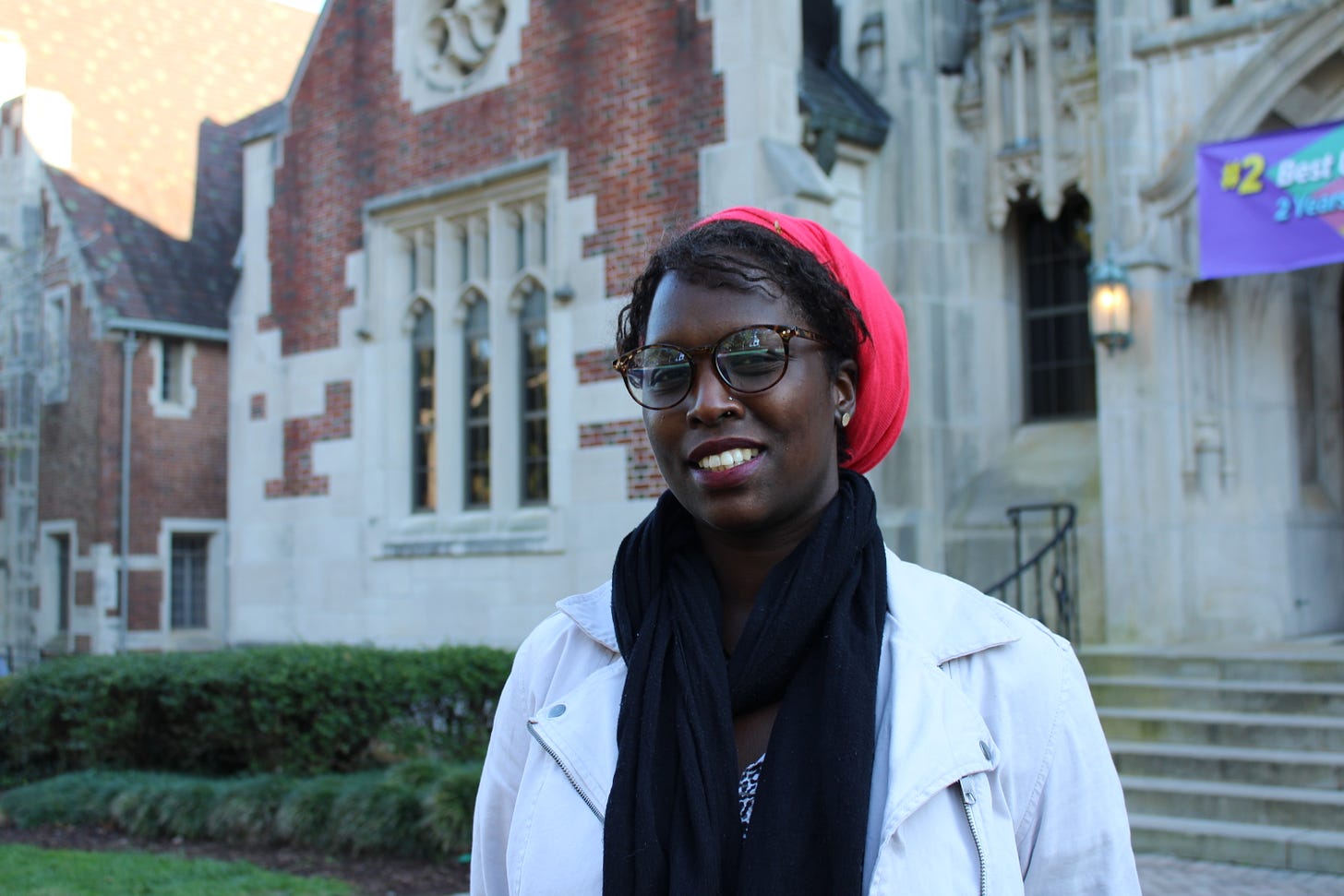How the impact of Sudan’s military coup is being felt in GA
As the coup raged, Saiba Abbas, a Sudanese American student at Agnes Scott College, struggled to bring her father from Khartoum, back to Watkinsville

People leave their homelands, cross oceans, and make arduous journeys to come to Metro Atlanta for so many reasons. And though they build new lives here, in suburbs and small towns in and around I-285, it’s impossible to ever leave where they left fully behind. Sometimes events that unfold thousands of miles away have a way of reaching across borders and turning their lives upside down.
That's what it's been like for Saiba Abbas. For two weeks, she hadn’t been herself. Her regular routine was the same- juggling taking care of her 1-year old son while driving between her home in Watkinsville, to Agnes Scott College for classes, to her internship at New American Pathways in Tucker. But her mind, and heart, were in a different world.
Saiba’s father, Yassin Bakhit, was in Sudan on October 25th when the Sudanese military dissolved the transitional government and took control of the country. Internet outages have been reported, phone lines have been blocked intermittently, and civilian leaders have been detained. Thousands of people have been out on the streets, demonstrating against the coup. At least 12 people have been killed in the last 10 days.
Bakhit had boarded a flight at Atlanta’s Hartsfield International Airport in early October, eager to visit his mother in Khartoum, Sudan’s capital. He’s been making the trip almost every two years, ever since he moved to Georgia more than two decades ago. He had packed a suitcase full of school supplies and medicines and also had plans for visiting his hometown in Darfur.
Saiba’s mother found out about the coup through a Whatsapp message - an old friend from Sudan said that the military had taken over. “We opened the news and found out it was true.” Immediately after, Saiba said, they lost contact with Bakhit. “When my mom called it said this number is not working. So any phone calls from outside of Sudan - it gets blocked. Because they don't want people to know what's going on.”
They weren’t the only ones in Georgia trying to reach loved ones in Sudan. There are almost 2,000 Sudanese living in Georgia, many of whom live in Clarkston, Stone Mountain, and Tucker. The Sudanese community in Atlanta has been growing since at least 1979, when the International Rescue Committee (IRC) opened its office here. Since then, IRC-Atlanta has helped resettle 686 individuals from Sudan. And throughout that time, there have been waves of refugees from Sudan coming to the U.S. “My mom says she’s been going through coups since her childhood,” said Saiba.
Saiba relied on Twitter and limited news reports to get any info from Sudan, “Only through Twitter, whenever people have the internet for a couple of seconds they can upload something. That's the only way we could find out what's going on and reports from places like Al Jazeera.”
When the U.S. Embassy in Khartoum advised its citizens to shelter in place and flights out of the country were suspended, Saiba and her family were frustrated, but undeterred. She downloaded Boss Revolution, an international calling app, and was finally able to speak with her father, though the conversations were short. “We didn’t talk about any politics, we were like okay, do you know if any flights are coming out of the country?”
As news of the coup raged on her phone, Saiba struggled to focus in her classes at Agnes Scott, where she majors in Social Innovation. “I couldn’t concentrate on assignments. I was going to tell my teachers what was going on, but I didn’t want to tell anybody about a coup.”
When she finally did, she was surprised by the response, “I told them guys, I'm going through something right now.” Her professors asked her to explain what was going on to her classmates, so Saiba provided them with a synopsis. She was surprised by their response, “I was like, oh, wow, they really want to know.” She encouraged her classmates to follow specific social media accounts, like @BSonBlast on Instagram, because “you won’t get the details on CNN.”
On November 2nd, the airport in Khartoum opened up - a few flights were taking off to neighboring countries. The roads to the airport were risky, but Bakhit took his chances. “He said I’m just going to take my luggage...wait at the airport and if there’s an airplane available I’ll just hop on,” said Saiba.
He was able to get on a flight to Doha, and around 9pm on Wednesday night, he landed in Atlanta.
Saiba’s relieved to have her father back home in Watkinsville. He’s taking a few days off - he needs to do the required COVID testing before going back to his job as a lab tech. But she still has one foot in Sudan. “I would always consider myself Sudanese. Even though I do have a U.S. passport, I’m in between. Yeah, I’m in between.”





